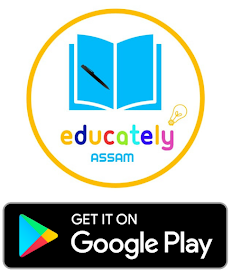Lesson 1| Crossing the Rubicon Questions answers | NCERT | Class 5
| Crossing the Rubicon |
Lesson 1 - Crossing the Rubicon
Questions & Answers
1. What was Crossing the river Rubicon by an Army general with his army into the city of Rome considered?
Answer: Crossing the river Rubicon by an Army general with his army into the city of Rome was considered an act of Treason.
2. Who was Caesar ?
Answer: Caesar was a Roman General.
3. What was Rome before Caesar founded the Roman empire?
Answer: The small State of Rome was a Republic with a Senate, before Caesar founded the Roman empire.
4. Why did the Roman Senate and Pompey dislike Caesar?
Answer: They disliked Caesar because he, posed a threat to the power of the Senate and Roman General, Pompey.
5. Why did Caesar cross the Rubicon?
Answer: The Senate had passed a law which prevented any general from crossing the river , and Bringing an army with weapons was considered an Act of Treason. Caesar Crossed the river Rubicon because if he didn't it would mean Physical and Political Suicide.
6.What incident gave him the signal that he must March on?
Answer: A strange incident occurred , which gave Caesar signal that he must March on. As Caesar was talking to his soldiers a very graceful and Noble man appeared, he was playing a pipe. After seeing this Soldiers gathered to hear him. That Noble man took a trumpet from a Soldiers hand and ran to the river with it. He played the war tune, which Caesar felt that it was a signal for him to March ahead.
7. What happened at the Battle of Pharsalus?
Answer: The result of "Battle of Pharsalus" was epic , Caesar won the battle and Pompey died in the Battlefield.
8. Why was the victory at Pharsalus a very important event in the history of Ancient Rome?
Answer: The victory at Pharsalus was a very important event in the history of Ancient Rome because Republic Rome then became a country ruled by Kings. Caesar founded the Roman empire, he became the dictator of Rome.
Comprehension - 2
Questions & Answers
1. Why were the Roman generals not allowed to enter Time with their armies and Weapons? Tick one answer.
a) The Senate was worried that the general and their armies may take over the Senate.
b) The Roman Senate disliked armies.
c) Generals and their Armies wanted to rule Rome.
Answer: (a) The Senate was worried that the general and their Armies may take over the Senate.
2. Caesar broke the law by crossing the Rubicon. Was he right in doing what he did? Give a reason to support your answer.
Answer: Caesar broke the law by crossing the Rubicon , yes he did right by doing it because Caesar could not afford to return to Rome as a private citizen because he would be immediately prosecuted and eliminated from political life .
3. Crossing of the Rubicon River was a turning point in the history of Rome. Write three things that happened as a result.
Answer: Crossing of the Rubicon River was a turning point in the history of Rome. The three things that happened as a result are as follows -
(1) Republic Rome then became a country ruled by Kings.
(2) Caesar Became the Dictator of Rome.
(3) It was the beginning of the Glorious Roman Empire.
Wordsmith
A. Pick the correct words to complete the sentences.
1. If you have ambition ( ambition/omen) and if you are ready to work hard, you can be successful.
2. Mahabharata is an epic (ancient/epic) tale of war , ambition and deceit.
3. The coach decided to disband (disband/reunite) the team because he had no money to take care of the players.
4. He was arrested for treason (loyalty/treason).
5. The Taj Mahal is an extraordinary (extraordinary/ordinar) monument of love.
B. Look up a dictionary and match the words of their meanings.
Following answers are framed serially as per the meaning
(1) Democracy - a government run by elected Representatives of the people.
(2) Dictatorship - Absolute power in the hands of one person.
(3) Plutocracy - A state ruled by a few wealthy people of the society.
(4) Monarchy - A state ruled by a King.
(5) Aristocracy - A state ruled by a group of high class people of the state.
(6) Anarchy - A state government, lawlessness.
(7) Coup - Sudden capture of power from a government.
C. Fill in the blanks with the idioms you have just learnt.
1. I did not do my home assignment. It completely slipped my mind.
2. You must not keep quiet if you see a child employed as a child labourer. You must speak your mind.
3. My result is coming out today. I am keeping my fingers crossed.
4. My mother said that she did not wish to go to Mumbai. My father said, "the die is cast as the tickets have already been booked."
5. Rhea said that she would not be able to climb the rock. I said, "Give it a shot, you may succeed."
6. Today's maths test was a piece of cake I got all sums correct.
7. If Caesar had not crossed the ribbon, world history would have been different.
A. Underline the subject and the Predicate in each sentence. Write S for Subject and P for Predicte.
1. The Man was alone in the park
Subject - The Man
Predicate - Was alone in the park.
2. The players practise very hard to participate in the Olympics games.
Subject - The players ,
Predicate - practise very hard to participate in the Olympics games.
3. The birds and animals lived happily in the forest.
Subject - The birds and Animals
Predicate - lived happily in the forest.
4. The Taj Mahal and the Qutub Minar are two famous monuments in India.
Subject - The Taj Mahal and Qutub Minar
Predicate - are two famous monuments in India.
5. The dried leaves were lying in the ground
Subject - The dried leaves
Predicate - were lying in the ground.
6. My dad can drive a Jeep and a truck.
Subject - My dad
Predicate - can drive a Jeep and a truck.
7. Samantha and Saira are friends
Subject - Samantha and Saira
Predicate - are friends
8. I cried
Subject - I
Predicate - Cried.
B. Read the instructions and fill in the blanks.
1. Boys and Girls are singing a song.(Compound subject)
2. Birds are sitting on the branches. (Plural subject)
3. The Man shouted (one word Predicate)
4. He plays tennis and then went to the market. (Compound predicate)
5. The sun rises in the east and sets in the west. ( Compound predicate)
6. He is my brother. ( Singular subject)
7. I tried very hard (3 word Predicate)
8. Neha dances very well. ( Singular subject with a describing word)
Information about Julius Caesar.
Born with a great political ambition Julius Caesar was a Roman statesman and brave general, who played a extraordinary role in founding the Roman empire by winning the Battle of Pharsalus.After winning this Battle the Republic Rome became a country ruled by Kings. Caesar founded the Roman Empire. He possessed extraordinary oratory skills which made him very popular and he became very popular with the people, his popularity spread to almost every corner of the Rome. Julius Caesar had won a large part of Gaul in 49 BCE, and on 10 January 49 BCE, Caesar Won the Battle of Pharsalus and became the Dictator of Rome. Caesar was assassinated by a group of rebellious senators who stabbed him to death.
Break Time Quiz
Who were these famous personalities that history can never forget? Look at the clues and guess.
1. In 1859, his book on the origin of species causes quite a stir. Those who weren't angry, only laughed at him! He said that humans evolved from apes.
Answer: Charles Darwin.
2. She helped provoke the popular unrest that led to the French revolution and to the overthrow of the Monarchy in France in August 1792.
Answer: Maria Antoinette.
3. He is regarded as the greatest scientist of the modern times. He was a Jew and was born in Germany. He later moved to the USA.
Answer: Albert Einstein
4. A Portuguese explorer (1460-1524), he led the first sea voyage from Europe to India.
Answer: Vasco Da Gama.
5. He was one of the fiercest and most successful of the Conquerors to come out of central Asia. For almost four decades, from the 1360s until his death, he and his nomad warriors conquered every territory from Mongolia in the east to the Mediterranean lands in the west.
Answer:

.png)




No comments:
Post a Comment